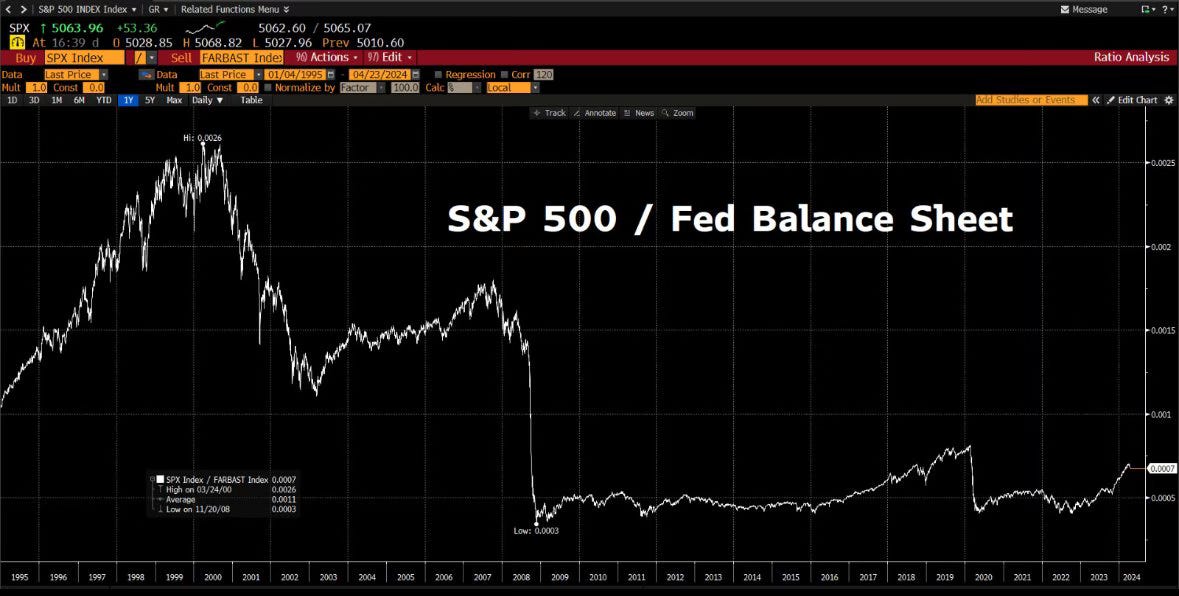Shock: Almost All Stock Growth Since 2008 has Been Due to QE

🌈 Abstract
The article discusses how the majority of stock market growth since 2008 has been due to the Federal Reserve's quantitative easing (QE) policies, which have artificially inflated asset prices by injecting large amounts of money into the financial system.
🙋 Q&A
[01] Quantitative Easing (QE) and Stock Market Growth
1. What is Quantitative Easing (QE) and how has it impacted the stock market?
- Quantitative Easing (QE) is a monetary policy tool where the Federal Reserve buys bonds to inject cash into the financial system, with the goal of spurring investment and economic growth.
- However, the article argues that this has simply led to banks and wealthy individuals investing this money into the stock market, artificially inflating asset prices.
- The article presents a chart showing a strong correlation between the Fed's balance sheet (i.e., the amount of money it has printed) and the S&P 500 index, suggesting that almost all stock market growth since 2008 has been due to QE rather than actual economic growth.
2. What are the implications of this finding?
- The article states that this is a "shocking and horrifying realization" as it means the stock market growth since 2008 has been "fake" and not based on real economic fundamentals.
- It argues that this goes against the principles of capitalism, which requires constant real growth to survive.
- The article also notes that the benefits of QE-driven stock market growth have primarily accrued to banks and wealthy individuals, rather than reaching "Main Street".
[02] Concerns about the Sustainability of the Stock Market
1. What concerns does the article raise about the sustainability of the current stock market growth?
- The article suggests that the stock market growth since 2008 has been entirely driven by the Fed's QE policies, rather than actual economic growth.
- This raises concerns about the sustainability of the current stock market levels, as the removal of QE support could lead to a significant market correction.
- The article argues that this calls into question the legitimacy of the stock market's performance and the health of the overall economy.
Shared by Daniel Chen ·
© 2024 NewMotor Inc.